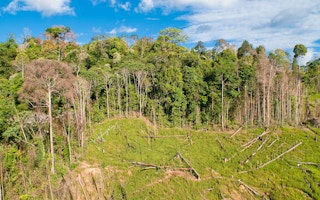More than 90 institutional investors managing more than $6.7 trillion in assets have called on the Roundtable on Sustainable Palm Oil to strengthen its standards, including by banning deforestation.
The investors outlined their demands in a letter to the RSPO, the world’s largest association for ethical production of palm oil, a ubiquitous commodity found in everything from chocolate to laundry detergent.
The RSPO is an association whose members consist of companies up and down the palm oil supply chain, from plantation and milling companies to consumer goods firms that use palm oil in their products. Some banks and NGOs are also members.
The RSPO certifies palm oil produced by its members as “sustainable” if it meets certain criteria. At present, members are allowed to clear certain kinds of forest to make way for their plantations. Indonesia, the world’s top palm oil producer, has one of the highest rates of forest loss.
“
Companies, investors, consumers and local communities will all benefit from a single gold standard for sustainable palm oil.
Adam Kanzer, managing director of corporate engagement, Domini Impact Investments LLC
The investors want the RSPO to ban clearance not just of some types of forest, but of all forest. (The term used in the letter is “high carbon stock” forest, which is essentially a reference to all forest.)
They also want to the RSPO to mandate that companies come up with “management plans for the conservation” of forest in their concessions.
“Our investment portfolios include companies that have significant exposure to deforestation risks and therefore, have made robust no-deforestation policies and strong commitments to sourcing sustainably certified palm oil,” the investors write.
Further, the investors want the RSPO to change its policy on carbon-rich peatlands, whose clearance by plantation companies in Indonesia is a major source of greenhouse emissions.
At present, the RSPO allows member companies to clear peat soil where the peat is less than 3 meters deep. The investors are asking for a “revised definition of peat soil and guidance on phasing out development or replanting on peat soils.”
RSPO members also promise to respect the right to “free, prior and informed consent” of local communities who live on or near the site of proposed developments. Essentially, this means companies cannot seize lands belonging to local people without their consent. The investors are calling for the establishment of “procedures and mechanisms to ensure the protection of human rights defenders from threats, intimidation and/or violence, aligned with the UN Declaration on Human Rights Defenders.”
Other points in the investors’ letter concern greater protections for plantation labourers. For example, plantation bosses should not be allowed to confiscate their workers’ passports, as is currently common in the industry, according to the letter.
“We want the RSPO to succeed,” said Adam Kanzer, managing director of corporate engagement, Domini Impact Investments LLC. ”Companies, investors, consumers and local communities will all benefit from a single gold standard for sustainable palm oil.”
This story was published with permission from Mongabay.com

















